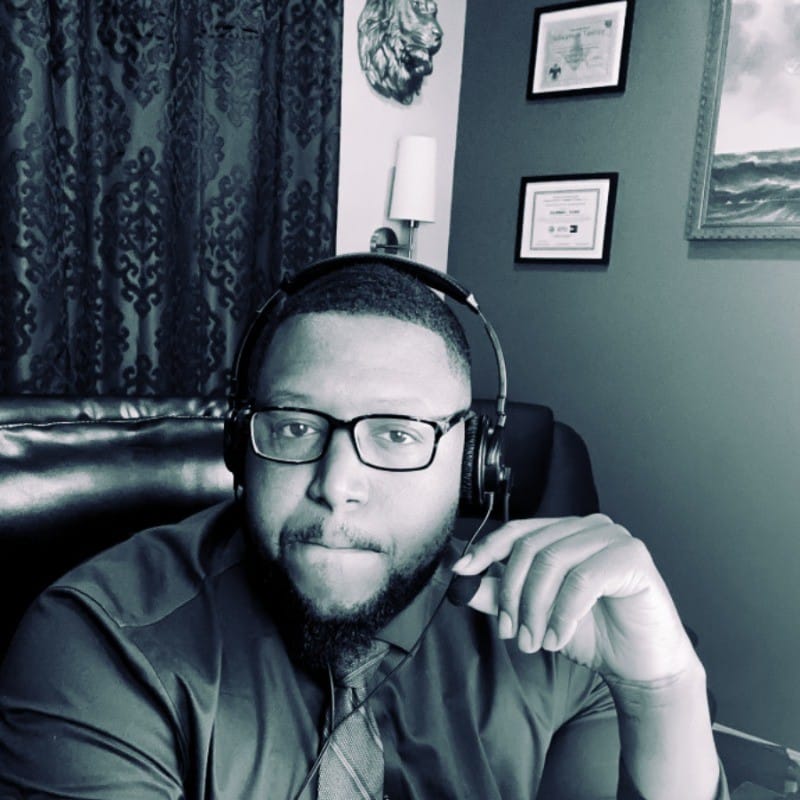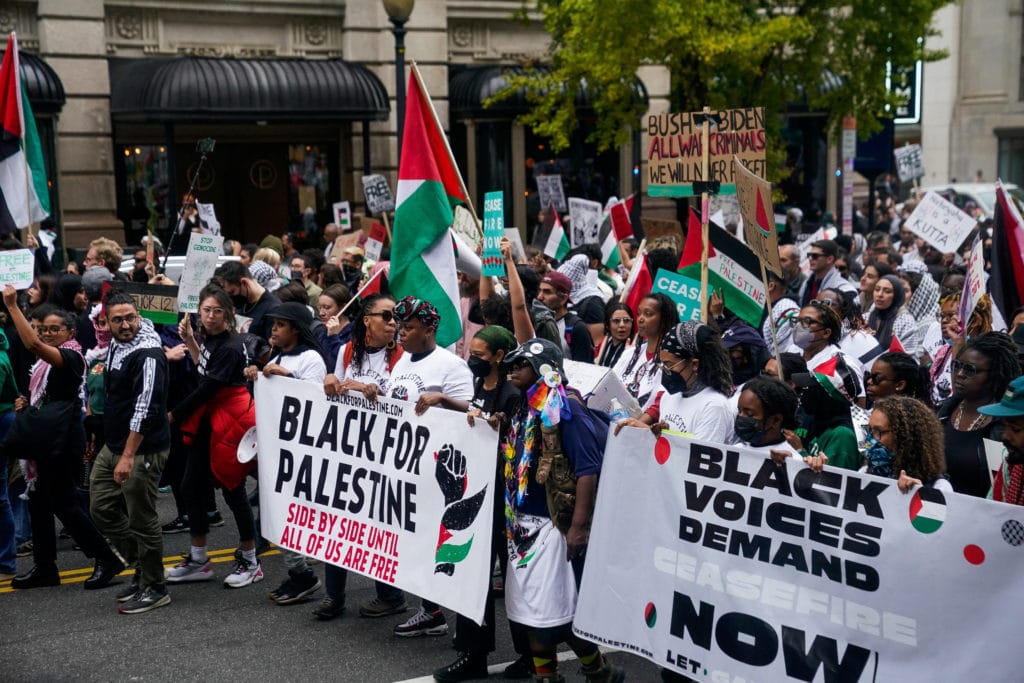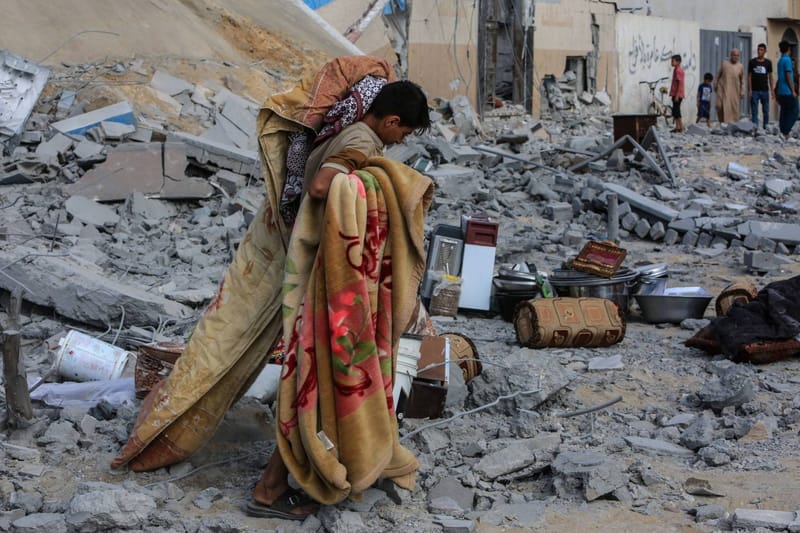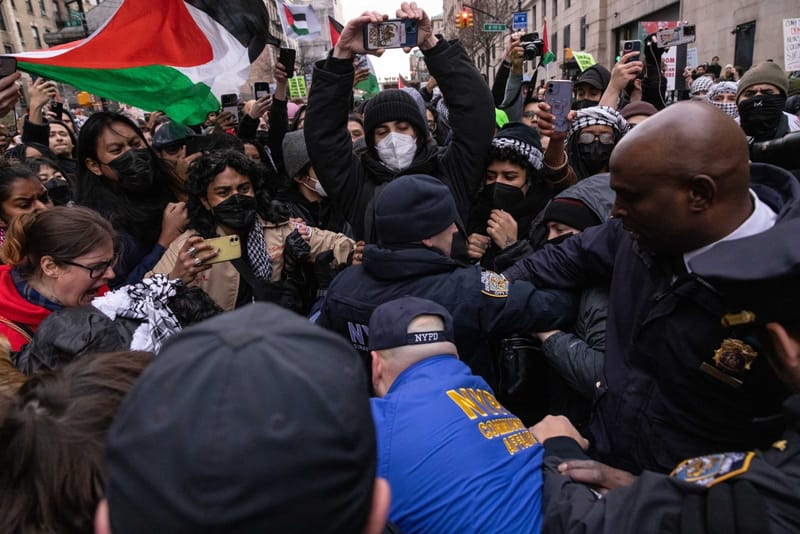Can Black America's Support of Palestine Persist Even After Discovering Their Racist Treatment of Black People?
When Black individuals look at Palestine, they're reminded of the struggles their own communities have faced. However, is this perception reliable and should theyt trust those emotions?


By: Sulayman Touray
Like a mirror reflecting South Africa's apartheid, the lingering aftermath of colonialism, and the poignant tale of white settlers who seized violent control of African nations, Black individuals view Palestine through a similar racial lens.

In recent times, there's been a growing narrative of solidarity from Black America towards the Palestinian cause, both standing against systemic oppression and injustice. This alliance seems rooted in shared struggles against racism, colonialism, and oppression.

However, a closer look reveals a nuanced and often overlooked aspect: the historical and ongoing racial oppression of Black people in Palestine by Palestinian people. This prompts a "not so fast" reaction toward the brown Arab world.

Black slavery endured in Palestine until the 20th century. The slave trade to Ottoman Palestine ceased in the 1870s, marking the end with the final recorded arrival of a slave ship. However, despite this official cessation, the remnants of slavery persisted. Descendants of former Black slaves were found to still labor for their former enslavers (Palestinian Arabs), indicating a continued form of exploitation.
Well, imagine this: Blacks were basically stuck in servitude mode in Palestine until the 1930s, and hey, some might argue they’re still getting the short end of the stick in the Arab world today. And get this, they even had a nickname, Abeed or abīd, which is basically a code for "slave." Talk about a reality check on that whole solidarity front, right?

Palestinian Arabs have been complicit in the racial oppression of Black people, including owning them as slaves and this challenges the simplistic narrative of oppressed versus oppressor.
Both Israel and Palestine have enforced systemic racism against Black individuals within their societies. While the Israeli-Palestinian conflict dominates headlines, the plight of Afro-descended Palestinians remains largely ignored. These individuals face a double-edged sword of racism, enduring discrimination from both Jews and Palestinians alike. Their voices have been marginalized, their struggles overlooked, and their oppression normalized.

The reality is that being Black anywhere in the world seems to come with its unique set of challenges. Afro-descended Palestinians embody this truth, facing systemic racism within their own communities while also enduring the brutality of occupation and conflict. Their struggle serves as a stark reminder that oppression knows no bounds, transcending borders and ideologies.

Black Americans and Africans championing the rights of marginalized groups must reckon with this reality. Before lending their support to any cause or movement, they must confront the uncomfortable truths within those communities regarding their own people. Solidarity cannot be selective; it must acknowledge the intersecting layers of oppression that exist.

The history of racial oppression in Palestine serves as a cautionary tale, reminding us that allyship requires critical reflection and accountability. It's crucial for Africans to prioritize self-love. Simply standing in distant solidarity with other non-black groups facing white brutality isn't sufficient.

As we navigate the complexities of global solidarity movements, let us not forget the voices of those who have been silenced and marginalized within oppressed communities. Their stories serve as a sobering reminder of the work that remains to be done in the fight against racism and oppression, both at home and abroad.

Don't want to see these ads? Signup for a paid subscription to remove all ads.





